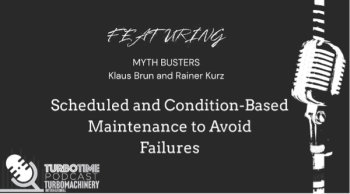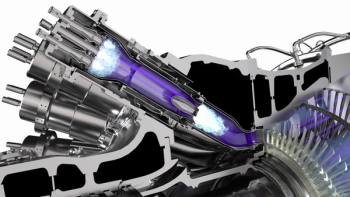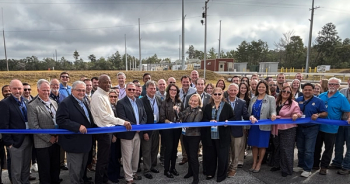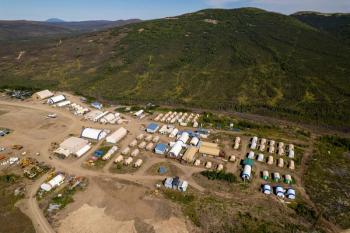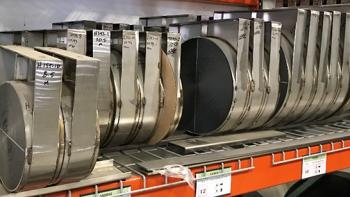
Turbo Tour: Mechanical Solutions: A Diagnostic and Design Engineering Firm
Mechanical Solutions offers onsite testing and solutions for vibration challenges in turbomachinery.
Mechanical Solutions, Inc. (MSI), an engineering firm that helps OEMs and end users with mechanical, fluid flow, and vibration challenges, opened its headquarters in Whippany, NJ in 1996 and is home to a team of 30 employees. Turbomachinery International toured its facility to glean insight into the company’s operations, including field testing that measures equipment performance and analyzes vibration data to troubleshoot mechanical, operational, and fluid flow issues.
The company operates out of a closely connected office space with access to an onsite workshop in the center of the building. This space was described as a “test laboratory” or, in other words, an area where engineers and technicians can apply technology and create small-scale models for in-field applications. In addition to a fully equipped workshop/lab, MSI houses a large-cluster computer system that performs calculations for the company’s analytic software, including Star CCM+, ANSYS, CFturbo, and VibVue.
From this location, as its base of operations, MSI gathers data from onsite testing at a plant, runs it through a suite of software packages, and offers solutions for customers with turbomachinery performance or reliability issues. MSI also has locations in New York with 5,500 square feet of labs, Houston, Kansas, and Pennsylvania.
“Some people come to us for design services, component design, or help designing an entire system if it’s fluid-related,” said Bill Marscher, founder and CEO/Senior Consultant. “Much of our business involves analysis or testing and troubleshooting of components or systems that are having problems with their field operation.”
Most of the work performed by the team at MSI, as mentioned by Marscher, occurs onsite to ensure accurate testing and evaluation. The team believes, at least with current technology, that the most reliable way to diagnose turbomachinery issues is to have onsite visits that remove a communication barrier between themselves and the customer’s equipment. About one-third of MSI’s business involves a wide range of field-based analysis and testing for either OEMs or end users.
“On the analysis and testing side, if a machine is not producing the expected fluid performance, it’s shaking too much, making strange noises, or bearings and seals are failing, then people will hire us to figure out what’s going on if the OEM, in spite of best efforts, cannot,” Marscher said.
Testing Tools & Solutions
Maki Onari, the current President, said that testing is MSI’s core business. “Many chronic vibration problems involve resonance of natural frequencies. We use our specialized modal impact testing to identify structural and/or rotor natural frequencies. Along with that, we perform detailed operating deflection shape (ODS) testing, which provides dynamic motion information on hundreds of points that we animate in 3D. A new technology that provides higher resolution information is our VibVue video camera system.”
The VibVue Motion Magnification Video system can slow down motion and then magnify motion up to a thousand times to show pixel-level vibration data to facilitate problem detection. With a detailed image of turbomachinery vibration, MSI can diagnose and solve resonance and other vibration issues, such as coupling misalignment or “soft foot”, quickly and efficiently.
Resonance represents most of the problems diagnosed and remedied by MSI, particularly in variable-speed machinery. A disruptive resonance frequency can cause excessive vibration of the components or the machinery, which can lead to structural failures due to fatigue or rubbing if left unaddressed.
Dr. Edward Bennett, VP of Fluids Engineering, said that one of MSI’s customers was facing severe vibrational issues caused by unsteady vortical flow in the draft tube of the hydro turbine, which caused excessive vibration and noise. “We performed a particular type of modification to the casing where we had to insert a part without taking the machine apart, injecting air into the system to quell the noise and vibration. The remedies we employ in fluid machines depend on the nature of the fluid dynamic instability,” Bennett said.
The Future of Maintaining Rotating Machinery
Looking forward to the future of testing, monitoring, and analysis for rotating machinery, the company offered a promising perspective on the technology.
“In regard to fluids, as computers advance, especially the new graphics processing units and advancements in parallelization, we’ll gain the ability to perform larger and larger calculations and capture more of the full physics present in the machine,” Bennett said.
He said in the next decade or so the hope is to conduct a complete high-fidelity analysis in real-time versus weeks of computational time. The ability to streamline turbomachinery diagnostics would, according to Bennett, revolutionize the industry in the way of convenience and economic feasibility. Rather than utilizing a high-processing computer to troubleshoot complex issues over several weeks, the process would be completed in, at most, a matter of hours. Eliminating time constraints would enable MSI to provide immediate value to its customers, particularly when downtime could eliminate profitability in times of a struggling economy, maximizing the benefits of the accuracy and effectiveness of its predictive tools.
Marscher assured that the human element in testing and monitoring, at least for the foreseeable future, will remain essential. “Sometimes artificial intelligence (AI) will make a mistake in an evaluation of a machine, particularly through false positives, where you could lose millions of dollars a day in production,” he said. “My opinion is that it’ll be a long time before you rely on a computer to make the tough calls. You still want to have a human in the loop, especially if it’s some kind of weird maintenance problem that AI hasn’t been programmed for or previously encountered.”
That said, Marscher believes that advanced computer hardware, software, and AI will make the field-based troubleshooting process and in-plant monitoring much easier to implement in the future. AI may integrate a physics-based model to extrapolate test data gathered from a system, eliminating the need for more extensive onsite testing and analysis. AI-supported remote monitoring and diagnostics would cut down on the cost of in-person site visits while maintaining and/or improving the integrity of traditional diagnostic methods. Vision-based dynamic information from a system could facilitate this.
Further, rapid computing advancements may hold some promise for more effectively implementing the company’s current technology, “People will be able to monitor and diagnose machinery worldwide from a central base, which we are in the early stages of. When fully implemented, I think this will be revolutionary compared to what happens now,” said Bennett.
Newsletter
Power your knowledge with the latest in turbine technology, engineering advances, and energy solutions—subscribe to Turbomachinery International today.

